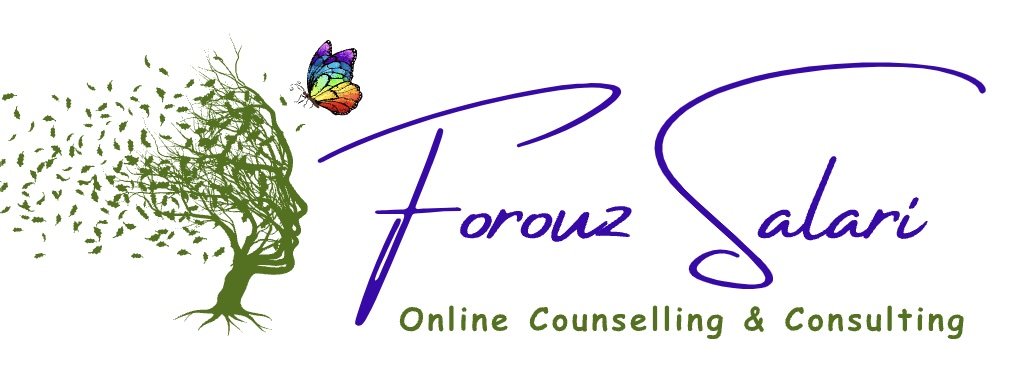Invisible Disabilities: Chronic Illness + Neurodivergence
December 3rd is International Day of Persons with Disabilities!
To shed light on the diversity and multiplicity of visible and invisible disabilities that people live with, I am sharing a personal story here…
I am a white-passing, Middle-Eastern / Southwestern Asian, bisexual, cis-gender, neurodivergent woman and a first-generation immigrant and settler (who came to Canada as a refugee, during childhood).
I am also a registered social worker, psychotherapist and clinical consultant, with a background in psychology and cultural anthropology.
I am based in Toronto, ON, Canada and work virtually with clients and organizations in Ontario, Nova Scotia and Alberta.
And, I live with 3 different Invisible Disabilities:
Polycystic Ovarian Syndrome (PCOS)
a chronic illness that I’ve lived with since puberty which affects my reproductive, endocrine and immune systems;
Osteoarthritis
a chronic and degenerative condition that I’ve lived with since my late-20s which causes chronic pain and at times affects my mobility;
and Autism
a nuanced and often misunderstood and stigmatized form of neurodivergence that I’ve lived with since childhood but only found out about in my late-30s.
In simple terms, neurodivergence refers to the different and diverse ways in which our nervous systems and brains are structured and function.
Based on the different makeup of our different brains and nervous systems, we might struggle in some areas or find certain things challenging, while really excelling and thriving in other ways.
The interesting thing is that all 3 of these invisible disabilities exist on a spectrum, which means that they show up in people and impact them in very different ways, some needing more support and others needing less support, at different stages of their lives.
For me (as with many people living with PCOS, Osteoarthritis &/or Autism), there’s also a clear genetic link for all 3 of these invisible disabilities, which are often further complicated by worsening environmental conditions and the ongoing climate crisis!
And, at the core, stress complicates and exacerbates all 3 of these disabilities for me, which is why I’m so passionate about learning and teaching about stress and burnout, and supporting my clients in healing through the effects of stress, and incrementally building a life, environment and community that sustainably helps them to manage the impacts of stress over time.
Stress is inevitable in our lives, especially in a capitalist and inequitable world that continues to perpetuate discrimination and oppression in many ways.
It is not a personal or moral failing to experience the often debilitating effects of stress on our physical and mental health AND our social and economic engagement with the world around us; just as it’s not a personal or moral failing or individual “problem” to live with one or more disabilities.
The pervasive and increasing experiences of chronic stress and burnout in people’s lives are systemic, especially for people living with disabilities or impacted by other intersecting forms of marginalization.
We all need and benefit from support from others, including from service providers from different disciplines who are trustworthy, anti-oppressive, open-minded, self-aware, informed, authentic, accountable and compassionate.
I have relied on such supports, at different points throughout my life, especially in adulthood when I’ve had more autonomy over my care needs, to help me:
heal, grow, find balance and myself again,
to participate in and engage with the world around me,
and overall to feel well and fulfilled.
Professional support, however, is not always affordable or accessible for people living with disabilities. And, often, their needs are not effectively recognized, accepted and accommodated in schools, the workplace or their communities, which unfortunately prevents them from fully sharing their unique abilities, skills and talents with the world.
We can all play a role in co-creating a more accessible world for all of us, whether in small or large-scale ways, in our homes, personal relationships, work environments, neighbourhoods and communities.
How can you contribute to a more accessible world around you?
And, how might you or a loved one benefit if your local surroundings and community were even a bit more accessible than they are today?
Helpful Informational Resources:
AUTISM:
Free Online Psychometric Tests for Autism + Informational Blog Posts:
Podcast:
“Meet My Autistic Brain” (podcast by The Autistic Woman)
Books:
“The Ultimate Guide to Autistic Burnout” (2024 e-book by Dr. Natalie Engelbrecht, Dr. Debra Bercovici, Eva Silvertant, and Kendall Jones)
“Unmasking Autism: Discovering The New Faces Of Neurodiversity” (2022 book and audiobook by Devon Price)
“Women and Girls on the Autism Spectrum, Second Edition: Understanding Life Experiences from Early Childhood to Old Age” (2024 book and audiobook by Sarah Hendrickx with Jess Hendrickx)
PCOS:
Podcast:
A Cyster & Her Mister (by registered dietician, Tallene Hacatoryan, and her personal trainer spouse, Sirak)
Book:
“PCOS SOS: A Gynecologist's Lifeline To Naturally Restore Your Rhythms, Hormones, and Happiness” (2019 book by Dr. Felice Gersh with Alexis Perella)
*Caution: Many resources on PCOS (including the ones listed above), while very informative, often lack a body positive approach, so please be mindful about taking what feels helpful and supportive for you (and your loved ones or clients), while leaving the rest!


